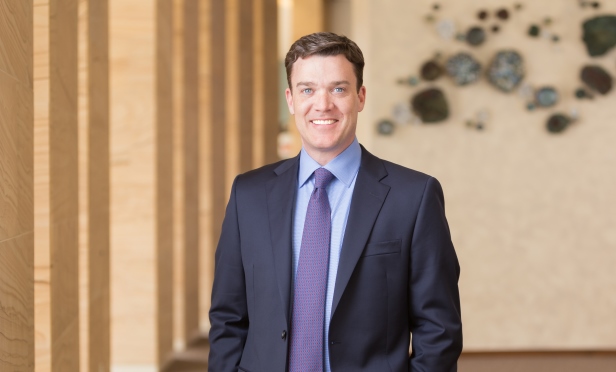
DALLAS—The workplace is rapidly changing and now involves four generations of workers with different needs. As a result, the focus on healthy workplaces is creating hospitality-driven work environments that attract and retain talent.
In response to this focus, Granite Properties recently kicked off a multi-city wellness program. People who work in Granite buildings can participate in lunch and learn sessions that cover topics such as nutrition, meditation and in-office exercise. The Dallas events include a program with Children's Health.
In this exclusive, Will Hendrickson, managing director of Granite Properties, discussed how office building owners can enhance wellness, a key to productivity.
GlobeSt.com: Why is wellness an important workplace amenity?
Hendrickson: We recognize the link between wellness and productivity. People who are happy, healthy and feel fulfilled are more productive and successful. Wellness programs support companies in enhancing productivity, and help them with attracting and retaining top talent in this very competitive job market. The world of office space is rapidly changing and companies are now employing four generations of workers with constantly evolving and different needs, but wellness benefits them all. Also, more workers are looking for ways to reduce the transition between work and home. Bringing programs that offer meditation, nutrition and in-office exercise to the workplace provide an easy access to experiences that allow for personal growth and development.
GlobeSt.com: How can office-building owners play a role in enhancing wellness in the workplace?
Hendrickson: Office building owners are in a unique position to utilize their common areas to create a sense of community and inspire people who work in their buildings to be their best and most productive self. As owners, we're not just offering a space anymore. We have the opportunity to offer hospitality-driven work environments that offer a mix of experience and lifestyle. Many of our buildings offer collaborative spaces, corporate living rooms and enhanced outdoor spaces to socialize or work, fitness centers, access to healthy foods, amenities within walking distance and more. We wanted to go a step further with our lunch and learn program focused on wellness. The program is part of TogetherWeConnect, a platform created to foster community among Granite customers through philanthropic and professional development events. The lunch and learns offer programming and tools customers can use to feel fulfilled and productive at work.
GlobeSt.com: What are key factors to implement for a successful wellness program?
Hendrickson: Partnering with experienced and local wellness leaders and making sure that the topics resonate with your audience are key factors for a successful program. Our local property managers developed partnerships with local wellness leaders to offer a wide variety of topics covering physical and emotional health. For instance, in Dallas, we are partnering with EXOS, which is part of the Children's Health Andrews Institute, to teach Nutrition 101, with Massage Integration and Health Reconnection to teach meditation, and with Massage Kneads and Wellness to teach in-office exercises. In Houston, Dr. Serge Gregoire of Mind and Body Solutions is teaching health and nutrition's effect on the mind and body. In Denver, Deanna Rasch, a T'ai Chi Chih instructor is teaching mindfulness and meditation. In Atlanta, Laura Kirangi taught aromatherapy and Heather Rogers, author of “A Simplified Life,” taught organizational skills.
GlobeSt.com: What have been some of the responses to your wellness program?
Hendrickson: We see that many people place value on work-life culture and appreciate us for making the investment in their health by bringing resources directly to the buildings. For instance, following a nutrition class with certified clinical nutritionist Susan Pugach in Southern California, which was attended by 45 people, many said they felt challenged and encouraged to be able to change their habits toward a healthier lifestyle.
© Touchpoint Markets, All Rights Reserved. Request academic re-use from www.copyright.com. All other uses, submit a request to [email protected]. For more inforrmation visit Asset & Logo Licensing.







